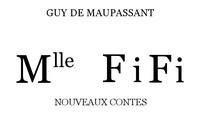|
|
Read this ebook for free! No credit card needed, absolutely nothing to pay.Words: 113408 in 44 pages
This is an ebook sharing website. You can read the uploaded ebooks for free here. No credit cards needed, nothing to pay. If you want to own a digital copy of the ebook, or want to read offline with your favorite ebook-reader, then you can choose to buy and download the ebook.

: The Second Generation by Phillips David Graham - United States Social life and customs Fiction; Children of the rich Fiction@FreeBooksTue 06 Jun, 2023 CHAPTER THE SECOND GENERATION "PUT YOUR HOUSE IN ORDER!" In six minutes the noon whistle would blow. But the workmen--the seven hundred in the Ranger-Whitney flour mills, the two hundred and fifty in the Ranger-Whitney cooperage adjoining--were, every man and boy of them, as hard at it as if the dinner rest were hours away. On the threshold of the long room where several scores of filled barrels were being headed and stamped there suddenly appeared a huge figure, tall and broad and solid, clad in a working suit originally gray but now white with the flour dust that saturated the air, and coated walls and windows both within and without. At once each of the ninety-seven men and boys was aware of that presence and unconsciously showed it by putting on extra "steam." With swinging step the big figure crossed the packing room. The gray-white face held straight ahead, but the keen blue eyes paused upon each worker and each task. And every "hand" in those two great factories knew how all-seeing that glance was--critical, but just; exacting, but encouraging. All-seeing, in this instance, did not mean merely fault-seeing. Hiram Ranger, manufacturing partner and controlling owner of the Ranger-Whitney Company of St. Christopher and Chicago, went on into the cooperage, leaving energy behind him, rousing it before him. Many times, each working day, between seven in the morning and six at night, he made the tour of those two establishments. A miller by inheritance and training, he had learned the cooper's trade like any journeyman, when he decided that the company should manufacture its own barrels. He was not a rich man who was a manufacturer; he was a manufacturer who was incidentally rich--one who made of his business a vocation. He had no theories on the dignity of labor; he simply exemplified it, and would have been amazed, and amused or angered according to his mood, had it been suggested to him that useful labor is not as necessary and continuous a part of life as breathing. He did not speculate and talk about ideals; he lived them, incessantly and unconsciously. The talker of ideals and the liver of ideals get echo and response, each after his kind--the talker, in the empty noise of applause; the liver, in the silent spread of the area of achievement. A moment after Hiram roused the packing room of the flour mill with the master's eye, he was in the cooperage, the center of a group round one of the hooping machines. It had got out of gear, and the workman had bungled in shutting off power; the result was chaos that threatened to stop the whole department for the rest of the day. Ranger brushed away the wrangling tinkerers and examined the machine. After grasping the problem in all its details, he threw himself flat upon his face, crawled under the machine, and called for a light. A moment later his voice issued again, in a call for a hammer. Several minutes of sharp hammering; then the mass of iron began to heave. It rose at the upward pressure of Ranger's powerful arms and legs, shoulders and back; it crashed over on its side; he stood up and, without pause or outward sign of his exertion of enormous strength, set about adjusting the gearing to action, with the broken machinery cut out. "And he past sixty!" muttered one workman to another, as a murmur of applause ran round the admiring circle. Clearly Hiram Ranger was master there not by reason of money but because he was first in brain and in brawn; not because he could hire but because he could direct and do. In the front rank of the ring of on-looking workmen stood a young man, tall as himself and like him in the outline of his strong features, especially like him in the fine curve of the prominent nose. But in dress and manner this young man was the opposite of the master workman now facing him in the dust and sweat of toil. He wore a fashionable suit of light gray tweed, a water-woven Panama with a wine-colored ribbon, a wine-colored scarf; several inches of wine-colored socks showed below his high-rolled, carefully creased trousers. There was a seal ring on the little finger of the left of a pair of large hands strong with the symmetrical strength which is got only at "polite" or useless exercise. Resting lightly between his lips was a big, expensive-looking Egyptian cigarette; the mingled odor of that and a delicate cologne scented the air. With a breeziness which a careful observer of the niceties of manner might have recognized as a disguise of nervousness, the young man advanced, extending his right hand. "Hello, father!" said he, "I came to bring you home to lunch." The master workman did not take the offered hand. After a quick glance of pride and pleasure which no father could have denied so manly and handsome a son, he eyed the young man with a look that bit into every one of his fashionable details. Presently he lifted his arm and pointed. The son followed the direction of that long, strong, useful-looking forefinger, until his gaze rested upon a sign: "No Smoking"--big, black letters on a white background. "Beg pardon," he stammered, flushing and throwing away the cigarette. The father went to the smoking butt and set his foot upon it. The son's face became crimson; he had flung the cigarette among the shavings which littered the floor. "The scientists say a fire can't be lighted from burning tobacco," he said, with a vigorous effort to repair the rent in his surface of easy assurance. The old man--if that adjective can be justly applied to one who had such strength and energy as his--made no reply. He strode toward the door, the son following, acute to the grins and winks the workmen were exchanging behind his back. The father opened the shut street door of the cooperage, and, when the son came up, pointed to the big, white letters: "No Admittance. Apply at the Office." Free books android app tbrJar TBR JAR Read Free books online gutenberg More posts by @FreeBooks
: Mlle Fifi: Nouveaux Contes by Maupassant Guy De - Short stories French; French fiction 19th century FR Nouvelles@FreeBooksTue 06 Jun, 2023
|
Terms of Use Stock Market News! © gutenberg.org.in2025 All Rights reserved.






